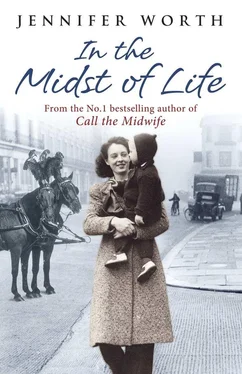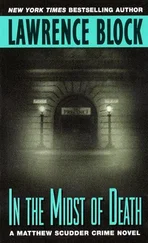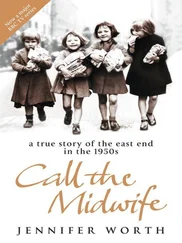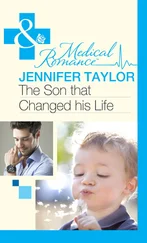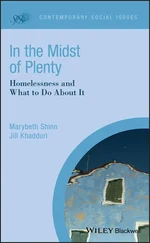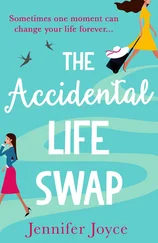Jennifer Worth - In the Midst of Life
Здесь есть возможность читать онлайн «Jennifer Worth - In the Midst of Life» весь текст электронной книги совершенно бесплатно (целиком полную версию без сокращений). В некоторых случаях можно слушать аудио, скачать через торрент в формате fb2 и присутствует краткое содержание. Жанр: Биографии и Мемуары, на английском языке. Описание произведения, (предисловие) а так же отзывы посетителей доступны на портале библиотеки ЛибКат.
- Название:In the Midst of Life
- Автор:
- Жанр:
- Год:неизвестен
- ISBN:нет данных
- Рейтинг книги:3 / 5. Голосов: 1
-
Избранное:Добавить в избранное
- Отзывы:
-
Ваша оценка:
- 60
- 1
- 2
- 3
- 4
- 5
In the Midst of Life: краткое содержание, описание и аннотация
Предлагаем к чтению аннотацию, описание, краткое содержание или предисловие (зависит от того, что написал сам автор книги «In the Midst of Life»). Если вы не нашли необходимую информацию о книге — напишите в комментариях, мы постараемся отыскать её.
In the Midst of Life — читать онлайн бесплатно полную книгу (весь текст) целиком
Ниже представлен текст книги, разбитый по страницам. Система сохранения места последней прочитанной страницы, позволяет с удобством читать онлайн бесплатно книгу «In the Midst of Life», без необходимости каждый раз заново искать на чём Вы остановились. Поставьте закладку, и сможете в любой момент перейти на страницу, на которой закончили чтение.
Интервал:
Закладка:
Not so long ago old age was seen as the natural winding down of life, but somewhere along the way that attitude has changed. Now our waning years are viewed as a series of illnesses requiring medical intervention. A GP can prescribe drugs to arrest the symptoms of ageing, but a time will come when this is not enough and, at that stage, the elderly person is taken into hospital for treatment. This is almost compulsory these days; consequently, the majority of us will die in hospital or an institution of some sort.
It is a strange fact that a doctor cannot sign a death certificate having entered the cause of death as ‘old age’. This is illegal, and a doctor who did not conform would be censured. Death has to be caused by a named disease. In countries where births and deaths are registered, this is required by all governments, and endorsed by the World Health Organization. It is unlawful to die of old age. This is illogical, but as Mr Bumble the Beadle famously remarked in Oliver Twist, ‘The law, Sir, is a ass.’
We who are growing old know that we are. We feel it each day in our bones, in our joints, in our balance, and our slowing down; we see it in our hair and wrinkles; we find that little things we used to do without thinking have become difficult, and the struggle gets harder as the years go by. Strength, eyesight, hearing, memory, all begin to fail us. This is ageing, and we accept it because there is no alternative. Although we try to shut it from our minds we know that death is approaching; we ‘know not the day nor the hour’, but we know it will come.
We all react differently. In earlier generations it was time to ‘take to one’s bed’, for those who could afford it, and I have known many people who did exactly that. No doubt a bed, an armchair by the window and no exercise shortened life, but no one expected to live beyond the age of seventy. I don’t know of anyone who would want to do that now. Life has lengthened, thanks largely to drugs, but also to diet, general health, attitude and expectations. We know that the Horseman of Death is fast approaching, and it seems to have stimulated a collective desire to cram as much as possible into the few remaining years. Thousands of old people, with the help of medication and artificial hips and knees, are gadding about all over the world, doing things they have never done before, and enjoying life hugely. In 2005, to celebrate my seventieth year, I aimed to cycle one thousand miles for charity, and achieved fourteen hundred. This sort of crazy venture is not unusual. The organisers of activity holidays, such as a trek in the Himalayas, or perhaps the Road to Katmandu, often find that the majority of their clients are between sixty and ninety years old. Such activity would have been unthinkable a generation ago.
Active old age is wonderful, but it is entirely dependent on good health, which is a gift of God, or if you prefer, the luck of the draw, and not a right of man. We all know that any day, at any hour, something catastrophic could happen – a stroke, a heart attack, a broken hip – that would put an end to the life we have built. And then we would be dependent on others. A chill of fear enters the heart. The medication that has given us an extra decade of active life can still keep a tired and ageing heart pumping; can maintain sufficient pressure to keep the blood circulating and prevent it coagulating; can make liver and kidneys continue to function. Medication can help us for a long time, even when the body is manifestly worn out. Legs cannot function, a tremor affects the limbs, eyesight and hearing go, voluntary and involuntary control deserts us, the brain … well, let us not speak too much of the brain, for that is the most frightening thought of all. ‘I would rather be dead,’ people say.
Not so. The instinct to live is far, far stronger than the rational mind, and when the time comes, instinct will win. People will consent to operations that will keep them alive for a bit longer, or take pills that they know will prolong their infirmities, though they know in their hearts that it is the fear of death that drives.
In the natural course of events, the period when death is taking over a body is fairly brief. My grandfather (who had no medication) had about a fortnight of this period in his life. Today it can drag on for months or years.
I spent twenty years in medicine, and I loved every minute of it. For me, it was a vocation and a privilege, working with the sick and the dying. To cure the sick was a joy, and exhilarating. To ease the process of dying was a sacred duty. I respect and admire the medical profession more than can be expressed. And I lament the sublime irony that the profession that has cured so much disease, and enhanced the quality of life for millions of people has, through its own success, been the instrument of distress at the end of life.
Healing the sick used to be described as ‘the art and science of medicine’. Recently I have heard it called ‘the science and technology of medicine’.
In the last fifty years medicine has changed profoundly. The scientific advances in pharmacology, made by multinational drug companies, are mind-blowing. The technology of medical treatment has advanced exponentially, and this will continue. Surgery and anaesthetics are such that staggering things can be achieved. And all is directed towards preserving life. This is what most people want, expect and sometimes demand, as though we have an intrinsic right to good health. In a post-religious age we place vast and unmerited confidence in the powers of medicine. When someone goes into hospital, it is expected that the doctors will be able to cure whatever is wrong. If they cannot, there is often a sense of outrage amongst aggrieved relatives. Even if someone is ready to go, relatives often feel that death cannot simply be allowed to take its course. They do not realise how quickly active old age can slip into extreme old age and imminent death.
If you look out for it, you will find in many local newspapers an indignant relative telling a story to an editor, who can see a good front page headline: ‘Hospital allows Dad to Die!’ This will be accompanied by a picture of a tearful woman holding up a photo of Dad. Then follows the story that the old man was around ninety, had had a heart attack or a stroke, or perhaps had broken a major bone, which had led to immobility, and in consequence he had developed a lung or kidney infection and died. The relatives claim, ‘It shouldn’t have happened. It was sheer neglect. He was in good health, enjoying life. He shouldn’t have been allowed to die like that. I blame the hospital.’
Doctors and nurses are the first to see the futility of strenuous intervention, but the fear of legal action can drive them into what is known as ‘defensive medicine’. This is bad medicine. The beleaguered doctors and nurses feel unable to make a decision based solely on professional judgement. They must always temper it with the thought that a decision or action might lead to an accusation of professional incompetence or neglect, or worse. Hospital practice today is driven by this necessity, and even if death is inevitable, doctors and nurses must be able to prove that they made every effort to prevent it. This is widely expected, nay demanded, by the general public and the law.
If people were with their elderly relatives all the time, day and night, as nurses are, they would be able to see for themselves the suffering and manifold indignities caused by the strenuous efforts to maintain life. Then perhaps they would be more inclined to say, ‘Enough is enough – and no more.’ Such a statement from a layman to a medical team is, I know, incredibly difficult. But the professions will usually accept it, and frequently with relief and gratitude.
Читать дальшеИнтервал:
Закладка:
Похожие книги на «In the Midst of Life»
Представляем Вашему вниманию похожие книги на «In the Midst of Life» списком для выбора. Мы отобрали схожую по названию и смыслу литературу в надежде предоставить читателям больше вариантов отыскать новые, интересные, ещё непрочитанные произведения.
Обсуждение, отзывы о книге «In the Midst of Life» и просто собственные мнения читателей. Оставьте ваши комментарии, напишите, что Вы думаете о произведении, его смысле или главных героях. Укажите что конкретно понравилось, а что нет, и почему Вы так считаете.
